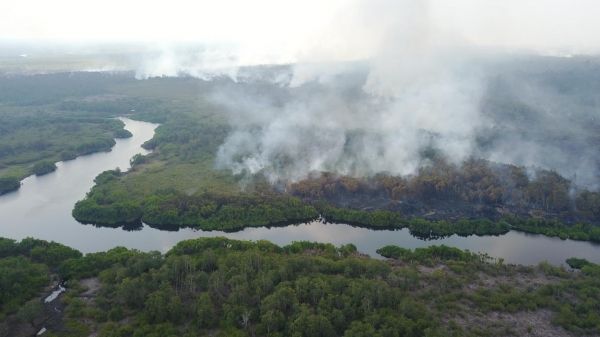Conservation of tropical peatlands could reduce the impacts of the COVID-19 pandemic and the likelihood of new diseases jumping from animals to humans, researchers say.
The scientists reviewed existing evidence and concluded the high biodiversity in tropical peat-swamp forests, combined with habitat destruction and wildlife harvesting, created "suitable conditions" for emerging infectious diseases (EIDs) that could jump to humans.
COVID-19 did not emerge in a tropical peatland area – but HIV/AIDS and the joint-first case of Ebola both originated in areas with extensive peatlands.
The study also assessed the possible impact of COVID-19 on tropical peatland conservation and local communities – and identified "numerous potential threats" to both.
Read more at University of Exeter
Image: Peatland fire encroaching into forest in Central Kalimantan, Indonesia. (Credit: Markurius Sera / Borneo Nature Foundation)


